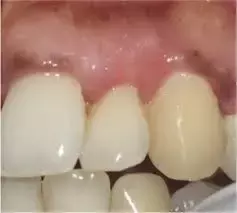- Home
- Medical news & Guidelines
- Anesthesiology
- Cardiology and CTVS
- Critical Care
- Dentistry
- Dermatology
- Diabetes and Endocrinology
- ENT
- Gastroenterology
- Medicine
- Nephrology
- Neurology
- Obstretics-Gynaecology
- Oncology
- Ophthalmology
- Orthopaedics
- Pediatrics-Neonatology
- Psychiatry
- Pulmonology
- Radiology
- Surgery
- Urology
- Laboratory Medicine
- Diet
- Nursing
- Paramedical
- Physiotherapy
- Health news
- Fact Check
- Bone Health Fact Check
- Brain Health Fact Check
- Cancer Related Fact Check
- Child Care Fact Check
- Dental and oral health fact check
- Diabetes and metabolic health fact check
- Diet and Nutrition Fact Check
- Eye and ENT Care Fact Check
- Fitness fact check
- Gut health fact check
- Heart health fact check
- Kidney health fact check
- Medical education fact check
- Men's health fact check
- Respiratory fact check
- Skin and hair care fact check
- Vaccine and Immunization fact check
- Women's health fact check
- AYUSH
- State News
- Andaman and Nicobar Islands
- Andhra Pradesh
- Arunachal Pradesh
- Assam
- Bihar
- Chandigarh
- Chattisgarh
- Dadra and Nagar Haveli
- Daman and Diu
- Delhi
- Goa
- Gujarat
- Haryana
- Himachal Pradesh
- Jammu & Kashmir
- Jharkhand
- Karnataka
- Kerala
- Ladakh
- Lakshadweep
- Madhya Pradesh
- Maharashtra
- Manipur
- Meghalaya
- Mizoram
- Nagaland
- Odisha
- Puducherry
- Punjab
- Rajasthan
- Sikkim
- Tamil Nadu
- Telangana
- Tripura
- Uttar Pradesh
- Uttrakhand
- West Bengal
- Medical Education
- Industry
Short-term progesterone administration safe for the periodontal environment in perimenopausal women

Short-term progesterone administration safe for periodontal environment in perimenopausal women suggests a new study published in the Oral Diseases
This study aimed to evaluate the effects of exogenous progesterone in the periodontal environment of perimenopausal women.This clinical trial was designed to assess the effect of endogenous progesterone on the periodontal environment in perimenopausal women. Individuals with periodontitis had a higher gingival index (GI), probing depth (PD), and clinical attachment level (CAL) than those without periodontitis, in both peri- and postmenopausal states. In perimenopausal women without periodontitis, the GI and PD and gingival crevicular fluid levels of IL-6 and TNF-α, but not CAL, were significantly higher during 3 months of exogenous progesterone administration; however, all parameters had reverted to normal levels by 6 months after the treatment was discontinued.
Either with or without periodontitis, 100 perimenopausal women received 3 months of progesterone treatment, as well as age-matched 100 perimenopausal and 100 postmenopausal women without treatments were enrolled (N = 50). The gingival index (GI), probing depth (PD), clinical attachment level (CAL), and tooth mobility (TM), as well the gingival crevicular fluid (GCF) levels of IL-6 and TNF-α were analyzed.
Results
Periodontitis showed higher GI, PD, and CAL than non-periodontitis at perimenopausal and postmenopausal periods. In women without periodontitis, the GI and PD, and the GCF levels of IL-6 and TNF-α were increased by 3 months of progesterone treatment, but recovered from the 6th month in the absence of progesterone. In women with periodontitis, only the PD was short-termly increased by progesterone treatment. For those without progesterone treatment, the GI, PD, and TM were not significantly different between perimenopausal and postmenopausal women either with periodontitis or not.
Exogenous progesterone short-termly exacerbated the inflammation and PD in perimenopausal women without periodontitis, and the PD in those with periodontitis.
Reference:
Man, Y., Sun, L., Qin, J., Zhang, X., Yan, S., & Niu, F. (2023). Exogenous progesterone short-termly affects the periodontal environment in perimenopausal women. Oral Diseases, 29, 1795– 1801. https://doi.org/10.1111/odi.14133
Dr. Shravani Dali has completed her BDS from Pravara institute of medical sciences, loni. Following which she extensively worked in the healthcare sector for 2+ years. She has been actively involved in writing blogs in field of health and wellness. Currently she is pursuing her Masters of public health-health administration from Tata institute of social sciences. She can be contacted at editorial@medicaldialogues.in.
Dr Kamal Kant Kohli-MBBS, DTCD- a chest specialist with more than 30 years of practice and a flair for writing clinical articles, Dr Kamal Kant Kohli joined Medical Dialogues as a Chief Editor of Medical News. Besides writing articles, as an editor, he proofreads and verifies all the medical content published on Medical Dialogues including those coming from journals, studies,medical conferences,guidelines etc. Email: drkohli@medicaldialogues.in. Contact no. 011-43720751


